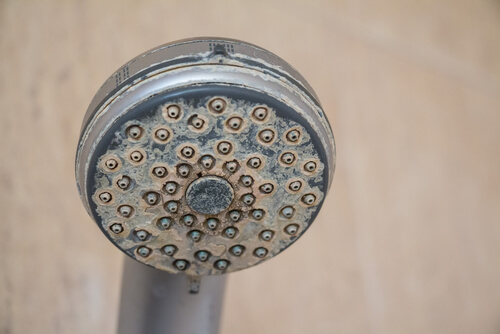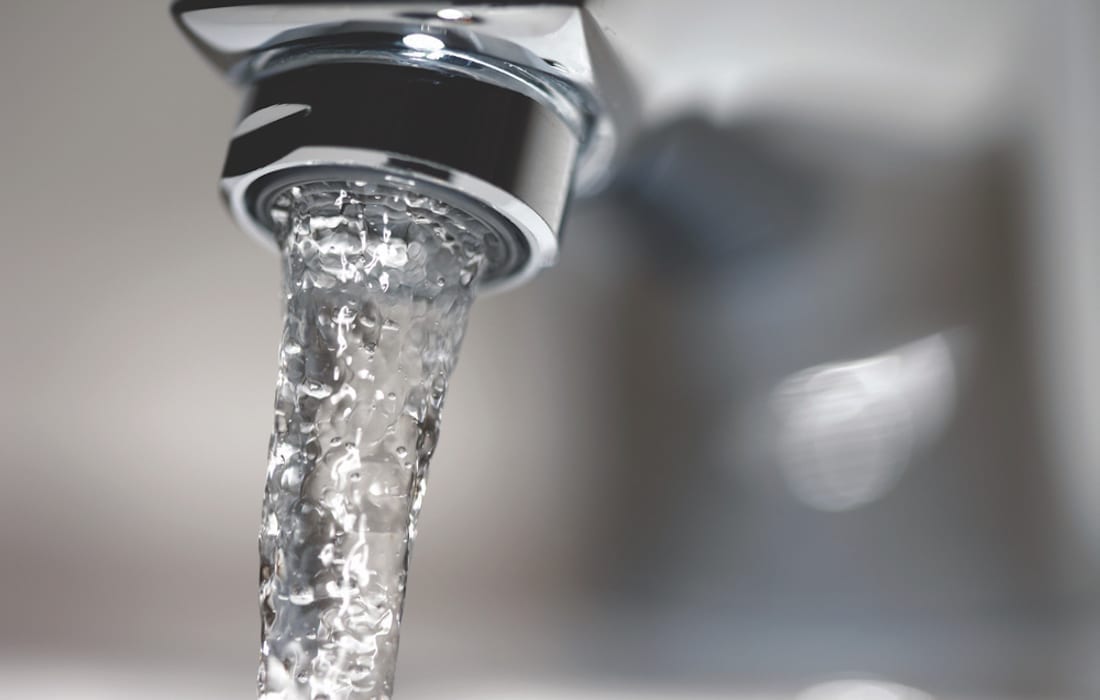You may have heard of “hard” and “soft” water before, but what does it mean to have hard water? Hard water is considered unfiltered water straight from your tap containing a mixture of minerals and chemicals. This can typically create problems for your home’s plumbing and even cause adverse effects on your body.
As a homeowner, you’ll want to understand what hard water is and, more importantly, what to do about it.
What Is Hard Water?
Water is a perfect example of a solvent, meaning it can quickly gather impurities. As water runs underground through the county’s main water supply, it picks up and dissolves minerals. With the large limestone deposits located in Central Kentucky, calcium and magnesium are frequent minerals dissolved in our tap water. The higher the concentration of calcium and magnesium, the harder the water typically is.
As the water is channeled to water treatment facilities, water companies will add chlorine, chlor, haloacetic acid, and additional chemicals to help purify the water. The combination of minerals and chemicals in your water can soon create problems for you and your household.
What Does Hard Water Do?
Have you noticed white water spots on already-cleaned dishes? Or are your clothes feeling rough after being thoroughly washed and dried? These are typical effects of hard water in the home.
While this water can still be consumed and used, it can interfere with everyday cleaning and hygiene tasks. Hard water can also create white deposits on your plumbing fixtures, shower walls, and more. This is due to the calcium and magnesium left behind once the water evaporates.
These minerals and chemicals can impact your skin, as well. When showering in hard water, your skin absorbs the water but leaves the minerals and chemicals behind. This can dry out your skin and cause irritation. After washing, it can even dull your hair since the minerals and chemicals bind to the hair once the water dries. So, it’s not your shampoo or soap’s fault; it’s a hard water problem.
While you may consider these all minor inconveniences, hard water can eventually lead to more costly problems.
The Effects of Hard Water on Your Plumbing System

Hard water can harm your home’s plumbing system and, if not treated properly, will eventually damage it. Hard water can negatively affect every appliance that requires water to flow through it. Faucets, showers, washers, and dishwashers can all experience issues with hard water.
It can even cause significant issues with your home’s water heater. When the calcium and magnesium are heated, they bind together in your water heater, creating a barrier inside the tank and further blocking water flow.
In tankless water heaters, the problems are different but not eliminated. The heated elements will attach themselves to the inside of the pipes, eventually restricting water flow. The problem lies within the heating of hard water, which causes the calcium and magnesium to become easily attached to the surfaces it flows through. The minerals and chemicals floating around in your hard water attach to your pipes and accumulate until they cause a more costly issue.
This pileup can significantly decrease your water heater’s life expectancy and efficiency by almost half. While other parts of the country average a 20-year life expectancy on water heaters, Lexington, KY, water heaters see an average of eight to ten years.
Solutions for Hard Water
Regularly cleaning all faucets, showers, bathtubs, washers, dishwashers, and any other appliance that utilizes tap water will be beneficial if you have hard water in the house. Some common remedies include vinegar and lemon juice to quickly remove hard water deposits.
However, regular cleaning can only help with the appearance of hard water, not the regular buildups present within your plumbing. There are easier ways to maintain your plumbing system, keep appliances clean, and keep your water purer. With a water purification solution, you can keep your appliances in optimal condition and your water clean.
Here are a few popular options for how to solve your hard water problem.
Water Softeners
A water softener will stop hard water at the source and neutralize any minerals in your water. Calcium and magnesium are positively charged ions, which results in their ability to bond with other materials. Softeners neutralize the minerals so they won’t bind to surfaces.
Water softeners prevent calcium and magnesium buildup inside your plumbing system, keeping it running longer and more efficiently.
Flow-Tech Home System:
The flow-tech home system is a maintenance-free, eco-friendly, and cost-efficient water treatment device that controls limescale buildup and clears your home’s pipes. Flow-tech has created the most advanced chemical-free water treatment system available today using technology acquired from years of research and development by chemical engineers and scientists.
It sends high-frequency waves through your home’s plumbing system and neutralizes all minerals and deposits. While water softeners are a great option, the flow-tech system has no water waste and is a more cost-efficient way of cleaning your water.
Flow-Tech Home System & Carbon Filter:
Choosing both a flow-tech home system and a carbon filter will result in the purest and cleanest way to remove all minerals and chemicals in your home’s water. While the flow-tech home works to soften your water, focusing on the minerals, a carbon filter specifically targets the chemicals in your water.
For more questions about indoor water quality or hard water solutions, contact the expert plumbers at Fayette Heating & Air. You can schedule online or call at 859-577-7478.


 Skip to content
Skip to content

